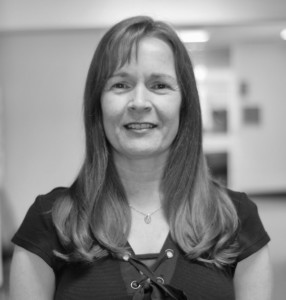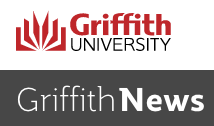Dr Michelle Ronksley-Pavia is an inspiring researcher working to raise awareness and standards of gifted and talented children and their education in Australia and across the world.
 She has both personal and professional motivations for her work having worked in special education and inclusive educational contexts, with a particular focus on gifted students and students who are twice-exceptional. Twice– exceptionality refers to individuals who have one or more disabilities and who are also gifted.
She has both personal and professional motivations for her work having worked in special education and inclusive educational contexts, with a particular focus on gifted students and students who are twice-exceptional. Twice– exceptionality refers to individuals who have one or more disabilities and who are also gifted.
Dr Ronksley-Pavia has taught extensively in adult and community education. During this time she has worked with many students who had not completed year 12. Amongst her cohorts, she noticed many students who were highly gifted but with something else also occurring in the background.
Dr Ronksley-Pavia says:
“Noticing the diversity of students who hadn’t finished high school spurred my interest and I went on to teach in schools as a teacher and became quite involved in inclusive education. Within schools there are many of diverse students, and some of them are gifted and talented and also have disability.”
Dr Ronksley-Pavia was Gold Coast Branch President of the Queensland Association for Gifted and Talented Children (QAGTC) for eight years. She worked closely with teachers and parents during this time, in professional development and parent advocacy and says the logical next step was to do further research.
Her passion and interest drive her research and her work is dedicated to improving the knowledge and experiences of teachers, researchers and communities in this area.
Dr Ronksley-Pavia says:
“There has been a shift in the last five years in terms of awareness of giftedness and twice-exceptionality, but there is also a lack of knowledge in terms of what is needed in the classroom to support these students. Most teacher education degrees don’t have a specific component related to gifted and talented education, or twice exceptionality. People tend to look at the deficit , so what students can’t do, rather than what they can do.”
Dr Ronksley-Pavia’s research looks at strengths-based approaches for supporting twice-exceptional students. From here, differentiation and personalised learning approaches can be implemented to address areas of need in terms of disability and giftedness support.
“These students tend to fall through the cracks. They get bored, they disengage. When the curriculum gets harder, they don’t often have the study or meta– cognitive skills and strategies to engage. And some can disengage totally so they discontinue further studies.”
Where educational systems are failing these individuals, this represents not only a personal loss, but also broader societal loss.
“Many of these individuals are just getting by in their schooling: they aren’t failing but often they aren’t reaching their potential. It’s a loss to all of us, a loss of potential, a loss of future scientists, doctors and entrepreneurs, change makers really.”
Dr Ronksley-Pavia is currently on a research and authorship sabbatical. She was awarded the Academic Equity Development Program from AEL so she can focus on a whole array of research and authorship around twice-exceptionality for the next six months.
Dr Ronksley-Pavia is excited to be working on her first monograph about twice–exceptionality.
“The impact of my research motivates me. It’s not just about citations or broader impacts, but really one child at a time, one teacher at a time. When I hear feedback that things I’ve said in my presentations, that I’ve written about in my publications, have influenced every-day practices of a teacher or a student in the real world, it’s very rewarding.”
She believes we must continue to support the creativity and personal development of gifted and talented students, and that Australia still has much work to do to reach international standards. She cites the Bridges Academy in the USA, wholly dedicated to “educating the exceptional” as an example of where we need to go. Dr Ronksley-Pavia has been recognised by the Bridges 2e Research Center as a world-leading expert for her working in the field of twice-exceptionality.
Dr Ronksley-Pavia is also an Australian Representative on the World Council for Gifted and Talented Children (WCGTC) where she also has the opportunity to champion the work of Australian researchers and educators in the field of giftedness and twice-exceptionality.
“We need to support the creativity of gifted and talented students, not just focusing on academia. In places overseas there are whole schools dedicated to the education and potential of gifted and talented students.”
Read more about Dr Ronksley-Pavia’s fascinating work here. Recent publications include:

Twice-Exceptionality in Australia: Prevalence Estimates

Griffith leads the way in gifted and talented education


